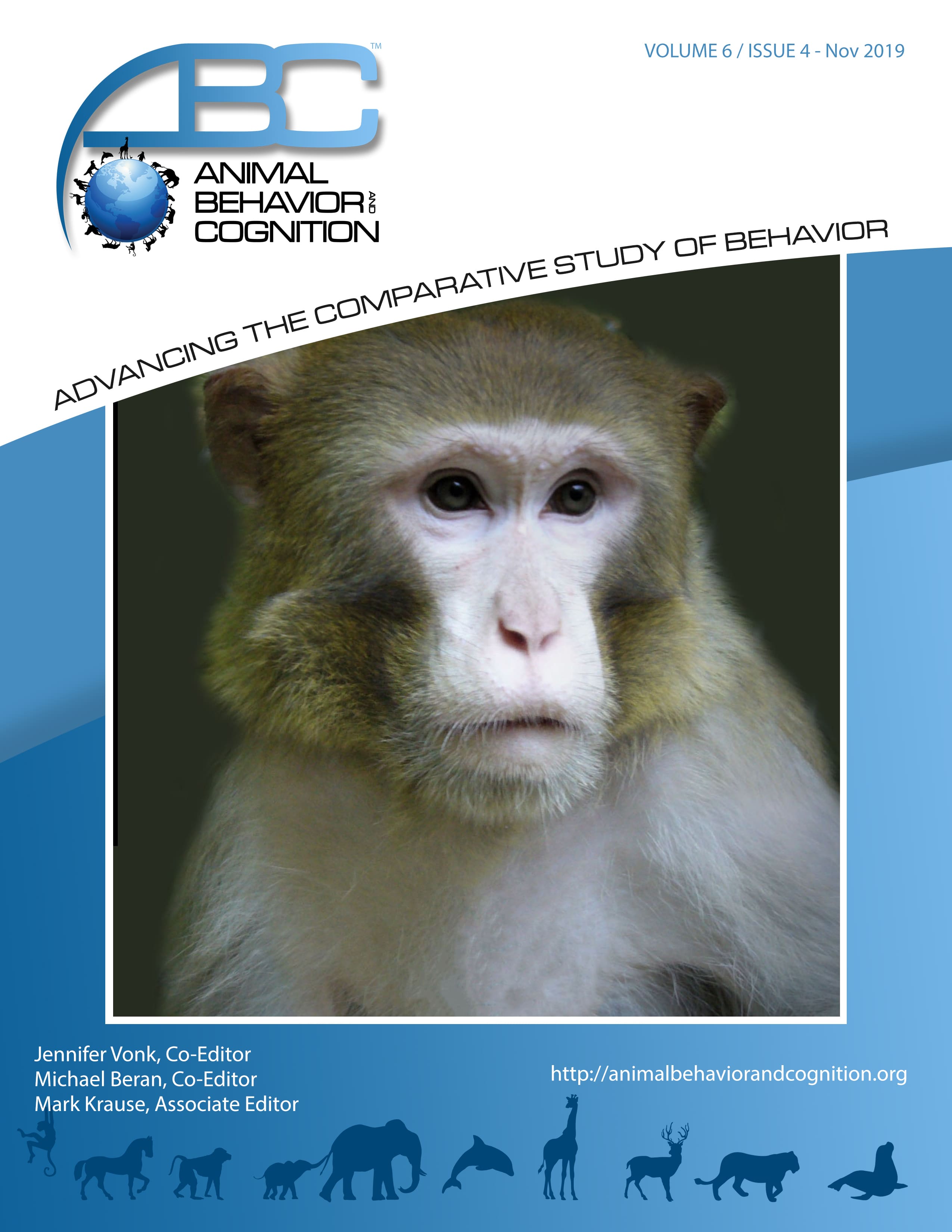Vol 6, Issue 4, November 2019
The Utility of Internal Cognitive States as Discriminative Cues Affecting Behavioral Adaptation in Humans and Animals
Citation
Yuki, S., Sakurai, Y., & Okanoya, K. (2019). The utility of internal cognitive states as discriminative cues affecting behavioral adaptation in humans and animals. Animal Behavior and Cognition, 6(4), 262-272. https://doi.org/10.26451/abc.06.04.06.2019
Abstract
In the last decade, metacognitive research on nonhuman animals has yielded results suggesting that metacognition was present at least in Old World monkeys. Experimental results are inconsistent on whether other species such as New World monkeys, rats, and birds possess metacognition. It is, therefore, difficult to accurately evaluate metacognition in these animal species. To solve this problem, it is crucial to determine the factors that predict the inconsistency of results. We found that even human adults did not necessarily behave metacognitively without a direct instruction to do so, and participants with poor memory retrieval performance tended to behave metacognitively. This is consistent with results from previous animal experiments and suggests the importance of the utility of an internal cue in predicting the emergence of behavior that can be interpreted as metacognition. Nevertheless, it is also suggested that if rats once perform the task wherein their cognitive state, such as memory confidence, was designed to be an effective cue, they would preserve their behavior adaptation on the basis of their cognitive state after its utility was decreased. Thus, the high utility of an internal cue would cause animals to rely on it, but such utility is not involved in the maintaining of the strategy. These results can help clarify the cause of inconsistent experimental results on whether animals show behavior that can be interpreted as metacognition and explain how metacognition is preserved in the evolutionary process.
Keywords
Metacognition, Comparative psychology, Rats, Humans, fMRI
